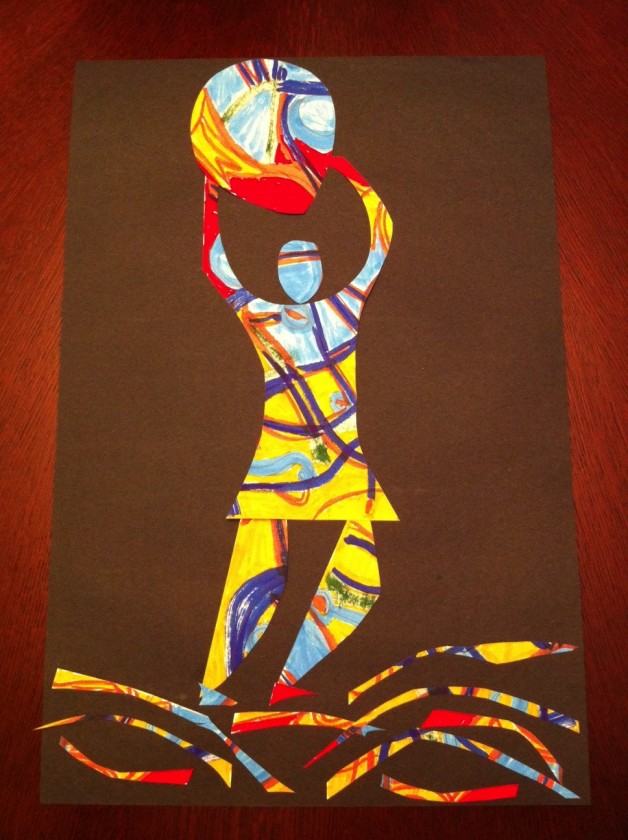
“. . . or you write a book and while you write it you are ashamed for every one must think you a silly or a crazy one and yet you write it and you are ashamed, you know you will be laughed at or pitied by every one and you have a queer feeling and you are not very certain and you go on writing. Then someone says yes to it, to something you are liking, or doing or making and then never again can you have completely such a feeling of being afraid and ashamed that you had then when you were writing or liking the thing and not any one had said yes about the thing.” — Gertrude Stein
Last week, I wrote about not knowing, that state of grace. But really what I meant by not knowing was waiting.
In his brilliant book, The Places You’ll Go, Dr. Seuss talks about the place where everyone is waiting:
“You can get so confused that you’ll start in to race down long wiggled roads at a break-necking pace and grind on for miles cross weird-ish wild space, headed, I fear, toward a most useless place. The Waiting Place . . .
“for people just waiting. Waiting for a train to go or a bus to come, or a plane to go or the mail to come, or the rain to go or the phone to ring, or the snow to snow or the waiting around for a Yes or No or waiting for their hair to grow. Everyone is just waiting. Waiting for the fish to bite or waiting for the wind to fly a kite or waiting around for Friday night or waiting, perhaps, for their Uncle Jake or a pot to boil, or a Better Break or a string of pearls, or a pair of pants or a wig with curls, or Another Chance. Everyone is just waiting.
“NO! That’s not for you!” — Dr. Seuss
And then on Friday, someone (in this case, my agent) said yes to it. A few minor tweaks and we’re going out with it. Now I’m waiting for her notes to arrive this week, but that’s okay. The yes is splashing around in my brain, is coloring the way I look at and think about the manuscript.
This strong reaction to external validation, whatever Gertrude Stein says, is a real problem, because the thing about being published is that it is a lot like not being published, only more public and amplified. People are more careless with your feelings because they think you don’t have any or oughtn’t to have any or that your feelings are none of their business.
Let’s face it, the books we love—different ones for you and me, surely, but vital to both of us—are books that someone else couldn’t get into, someone else hated, someone else shrugged off. Does that mean the books have no value? Of course not. And yet when someone can’t get into, hates or shrugs off your book—oh, the pain of it. The way your own certainty can come crashing down.
If this sounds strange and unfamiliar to you—bravo. Self-doubt is a cruel foe and one that must be fought with vigilance.
Five Ways to Fight Self-Doubt
1) Keep the praise handy. That person who said yes to it? Get it in writing or take notes—and pull that praise out when you need a reminder.
2) Do affirmations. Cheesy, right? But learning to speak to ourselves in the voice we long to hear is no mean feat. Want some praise? Who better to give it than fabulous you?
3) Think about your ideal reader. Think about the pleasure she or he will take in your work. Don’t focus on yourself as the writer waiting for assurance, but think of yourself as the storyteller, the giver of insight and joy (and some terror and sorrow for extra good reading).
4) Think about the process, not the product. When Angie was coaching me about this novel, she said, “I don’t hear you talking about loving writing much these days.” And somehow, that changed everything. That’s probably another post, but in short, I spent some time putting supports into place to make the writing more pleasurable to me. I truly loved writing this book. I loved revising it even more. Whatever happens from here on out, I didn’t waste my time: I had a blast.
5) Do the work you need to do to earn your own respect. Don’t sell yourself or your book short because you are impatient or bored. And then remind yourself of all that work. Put it into those affirmations, post it by your screen, write an autobiography of your book—how it came to be. (All that work! So easy to forget . . .) Bravo. Take a bow. Hold your head up high. You did it, and no one can take that away from you.
Elizabeth Stark is the author of the novel Shy Girl (FSG, Seal Press) and co-director and co-writer of several short films, including FtF: Female to Femme and Little Mutinies (both distributed by Frameline). She earned an M.F.A. from Columbia University in Creative Writing. Currently the lead mentor and teacher at the Book Writing World, she’s taught writing and literature at UCSC, Pratt Institute, the Peralta Colleges, Hobart & William Smith Colleges and St. Mary’s College. She’s at work on a novel about Kafka.
